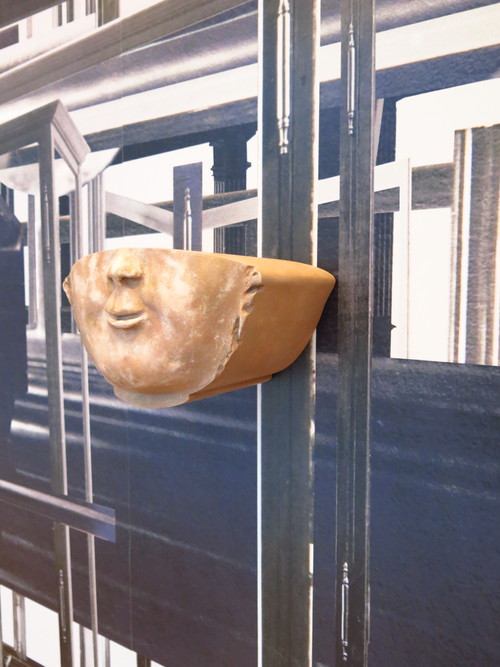Walid Raad: Museum of Modern Art
April 14, 2016
Keren Moscovitch, Cohort ’14
Our January residency in New York City included a visit to the Walid Raad retrospective at the Museum of Modern Art. Experiencing Raad’s work in person, as well as learning of the history of its production, was a watershed moment for students in terms of understanding the role and impact of the artist-philosopher. Raad holds a PhD in Postcolonial Theory, embodying the academic rigor of IDSVA’s philosophy curriculum while at the same time approaching the research tradition with a productive skepticism. His poetic interpretations deconstruct data-based research from the inside out, providing alternative narratives of historic events and demonstrating how an artist skilled in critical analysis can produce profound cultural documents that hover over both artistic and philosophical discourses.

.jpeg)
The 25-year retrospective highlights two major bodies of work. For the earlier project, Raad created the Atlas Group (1989–2004), a fictional collective of researchers tasked with documenting and archiving contemporary Lebanese history, and particularly the Lebanese Civil War (1975-91). By presenting a series of real and imagined narratives, often drawn from a trove of historically sound documentation in re-imagined contexts, Raad re-reads a history that is constantly shifting. His process highlights the importance of memory, personal anecdote and untold secrets to the field of historical analysis. Scratching at things I could disavow (2007–ongoing) is perhaps an even more enigmatic body of work, with its overt magical realism and reliance on fantasy to tell fabricated stories about the burgeoning Arab contemporary art market. Unlike the Atlas Group archive, the fictional context of this newer work sits much closer to the surface and invites a reading of formal elements through an ideological lens, such as Raad’s amusing anecdote about an exhibition he had to mount after his artworks from the Atlas Group “shrunk to 1/100th of their original size” (Raad).
.jpeg)
By performing academic research, Raad questions its truthfulness and invites us to consider Heidegger’s reinterpretation of the Greek term aletheia to mean unconcealment. Raad reveals underlying overtones found in historical documents, and creates fictional characters to steward the newly formed narrative arc. Instead of presenting cold, hard data, he shares with us various narrators’ sense of ambivalence and dread at seeing Israeli soldiers awaiting their orders after invading Beirut, or finding unexploded ammunition in a stockpile of weapons. The accompanying photographs are striking in their directness and seductive in their ambiguity. By contributing a strong scholarly hand and research methodology to the artistic landscape, Raad repurposes the critical analysis that normally stays locked in the Ivory Tower of Academia and redistributes it, perhaps more horizontally, throughout the realm of creative practice. By poeticizing information, Raad performs a radical act of unconcealment on the contemporary stage, revealing the limitlessness of the artistic mind.
